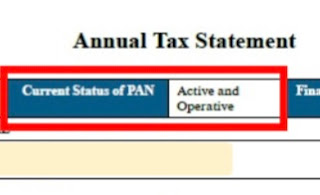1.
Introduction
- Finance Minister Nirmala Sitharaman, in
the Union Budget 2024 speech, announced the extinguishment of tax demands until
Assessment Year 2015-16.
- Following the announcement, the Central
Board of Direct Taxes (CBDT) released an order outlining the remittance and
extinguishment process for tax demands under the Income Tax Act, 1961, Wealth Tax Act, 1957, or Gift Tax Act, 1958.
2.
Monetary Limit for Waiver of Demand
- Until AY 2010-11, demands up to Rs. 25,000
per entry are eligible for waiver.
- From AY 2011-12 to AY 2015-16, the waiver
applies to demands up to Rs. 10,000 per entry.
3.
Maximum Ceiling of Rs. 1 Lakh
- Remission and extinguishment of eligible
demands are capped at Rs. 1,00,000 per assessee, regardless of the total
eligible amount across assessment years.
4.
No Waiver for TDS/TCS Demands
- Waiver of demand doesn’t apply to demands
raised against tax deductors or collectors under TDS or TCS provisions of the
Income Tax Act, 1961.
- Outstanding demand for eligible assessment
years will be exclusive of demands arising from TDS/TCS provisions.
5.
Tax Demand Components
- Outstanding demand comprises principal tax
under the Act plus interest, penalty, fees, cess, or surcharge as per Act
provisions, with the ceiling limit as applicable.
6.
Exclusion of Interest on Delayed Payment
- Interest under section 220(2) isn’t
considered for calculating demand entry amount or ceiling limit of Rs. 25,000,
Rs. 10,000, or Rs. 1,00,000, respectively.
7.
No Right to Claim Credit or Refund
- Remission of outstanding demands doesn’t
grant the assessee the right to claim credit or refund under the Income Tax Act
or any other legislation.
8.
No Impact on Criminal Proceedings
- Waiver of demand won’t impact ongoing or completed criminal proceedings against the assessee and doesn’t provide any benefit, concession, or immunity under such proceedings.





.webp)
